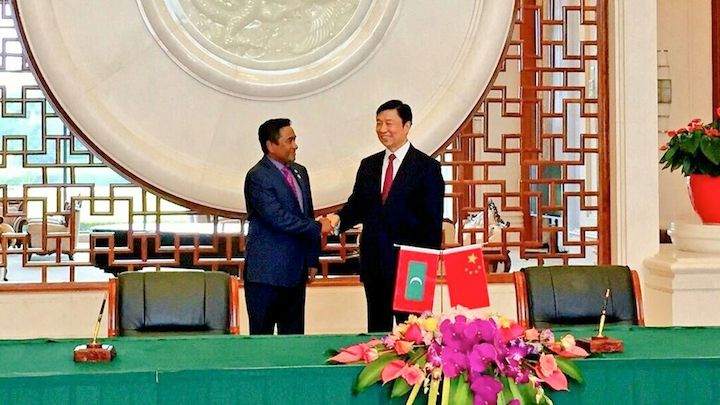Defence minister summoned over Chinese submarine ‘incursion into Maldivian waters’
Defence minister Moosa Ali Jaleel has been summoned to parliament to answer whether a Chinese Yuan class 335 submarine entered Maldivian territorial waters between March 31 and May 22. MDP MP Eva Abdulla submitted the question to parliament yesterday to summon the retired major general for minister’s question time.

08 Jul 2015, 15:56
Defence minister Moosa Ali Jaleel has been summoned to parliament to answer whether a Chinese Yuan class 335 submarine entered Maldivian territorial waters between March 31 and May 22.
Eva Abdulla, an MP with the main opposition Maldivan Democratic Party (MDP), submitted the questions to parliament yesterday. Under parliamentary rules, a 14-day notice must be given for minister’s to appear for questioning.
An Indian newspaper India Today reported on June 27 that “China’s deadliest attack submarine” crossed the Arabian Sea and entered Karachi port on May 22.
Become a member
Get full access to our archive and personalise your experience.
Already a member?
Discussion
No comments yet. Be the first to share your thoughts!
No comments yet. Be the first to join the conversation!
Join the Conversation
Sign in to share your thoughts under an alias and take part in the discussion. Independent journalism thrives on open, respectful debate — your voice matters.




